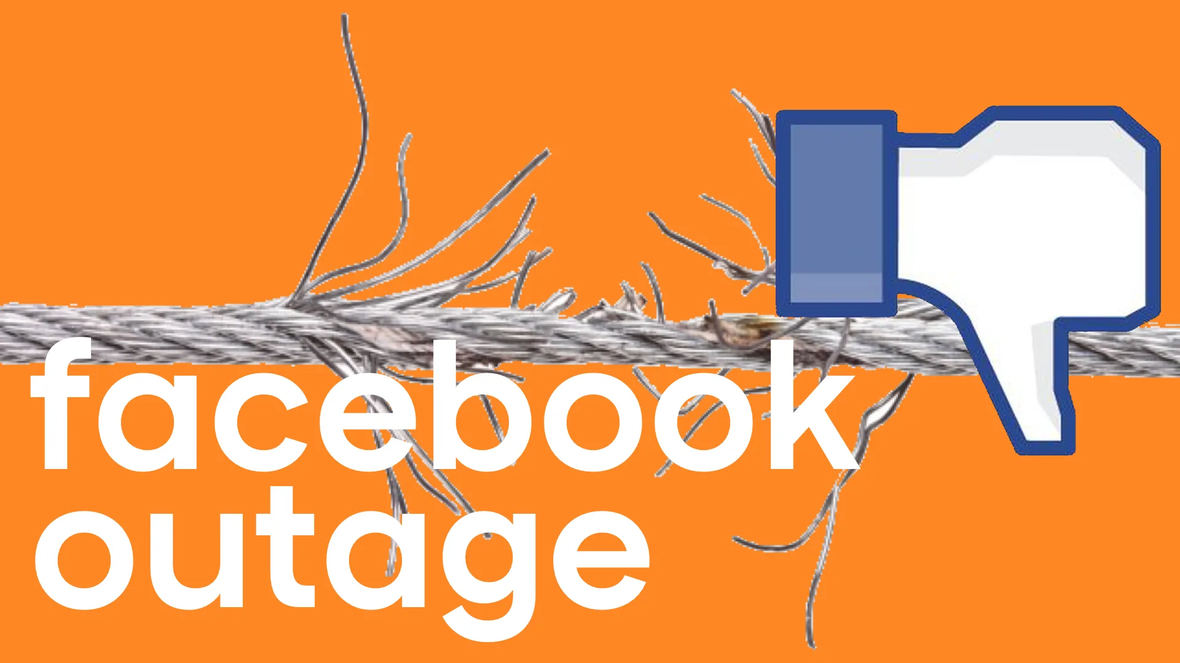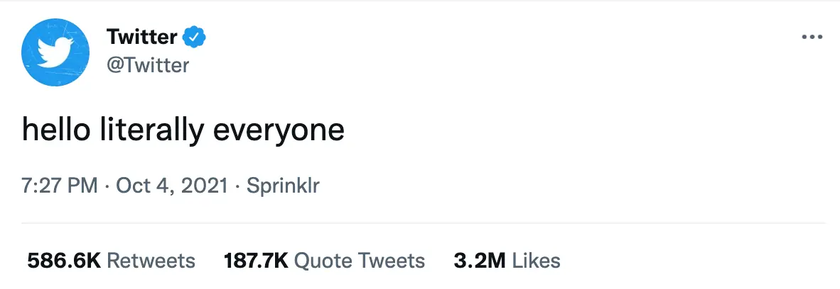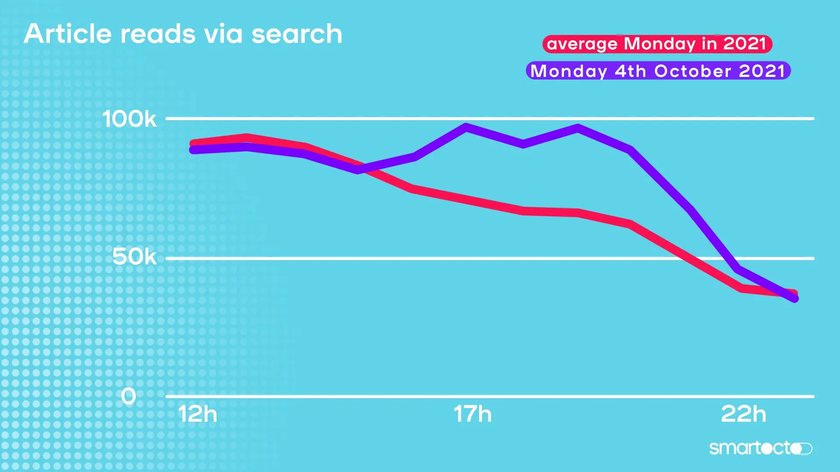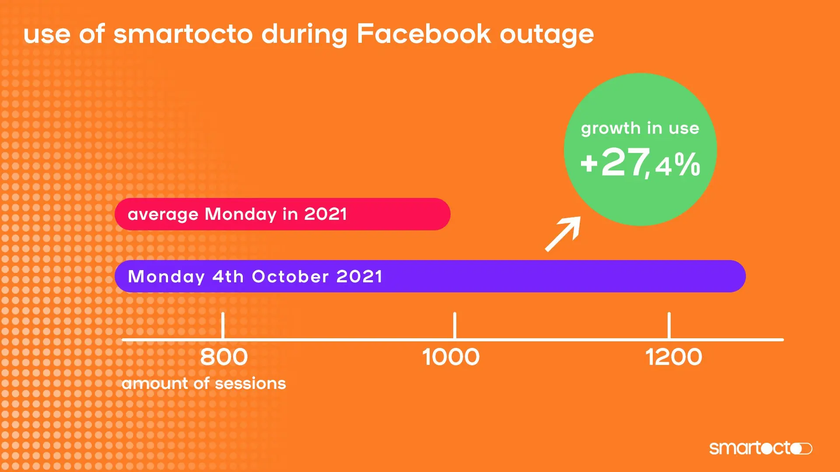On Monday 4 October, billions of users found that for hours that day, they were unable to access Facebook, Instagram and Whatsapp. An outage of this scale, and for this long, is rare.
Not being able to remind your partner to take out the garbage was one thing, but what were the consequences for online publishers for whom the platform accounts for around 20% of their day to day traffic? This was no joke.
We looked at our clients’ data in order to compare the traffic of 4 October to traffic from an average Monday in 2021. What we saw was that publishers’ traffic via search was much higher during the Facebook outage - and traffic through Twitter increased significantly as well. That last part is obvious: when one social platform shuts down, people turn to the other. Nature abhors a vacuum, but so do social media users, apparently.



